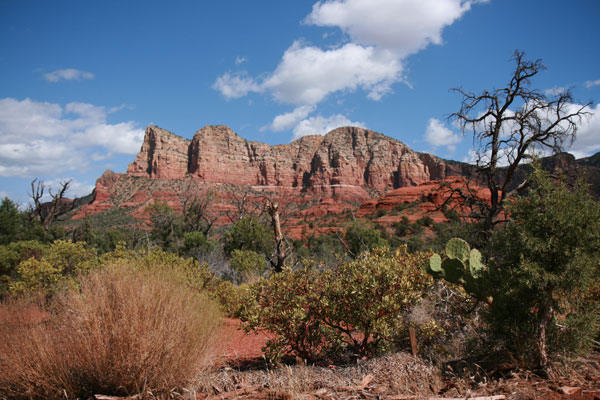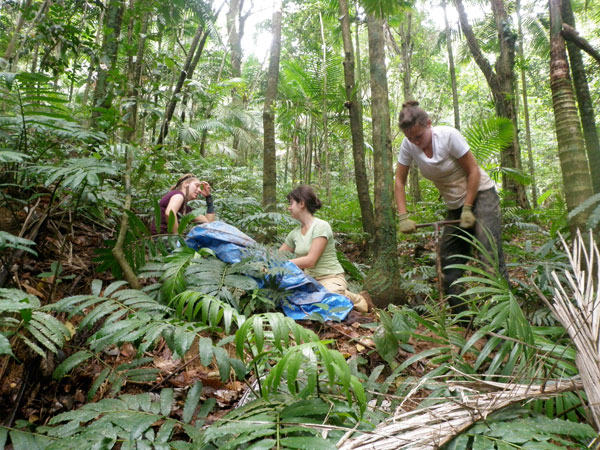
Photo by Katie Fiorella
The Division of Ecosystem Sciences (ES) is an intellectual collaboration among biological and physical scientists who endeavor to understand and sustain the ecosystems of the world. Our ambition is to develop an integrated understanding of ecosystem function and to provide society with the scientific means to face growing environmental challenges. We share an inclusive definition of an ecosystem that acknowledges the range of spatial and temporal scales involved in understanding dynamic biophysical systems.
Given our origins (faculty from forestry, soil science, and plant pathology departments), we focus on the ecology of terrestrial communities – forests, savannas, and grasslands – and their interface with aquatic ecosystems (e.g., estuaries, riparian zones, and other wetlands).
Although our specific disciplines are diverse, a common interest is discovering the interactions among the hydrosphere, atmosphere, and geosphere. The spatial scales of study extend from molecules to the globe, and the temporal scales span from a few micro-seconds to millions of years. Humans are key components, both as external controls on ecosystem processes, and as organisms dependent on ecosystem services.
Research and Stewardship

Photo by Wendy Yang
The Division is committed to informing the stewardship of working landscapes, the conservation of threatened species, and the restoration of degraded habitats with the best science.
Cooperative Extension specialists, whose mission is to extend and apply science, are fully integrated into the intellectual life of the Division.
But the Division does more than just extend the results of basic research. In many instances, the challenges faced by resource managers motivate the research enterprise. We wrestle with the “messiness” of environmental issues and try to address them in their full complexity.
ES scientists often lead collaborative projects that seek to engage stakeholders in the process of finding solutions to contemporary environmental problems.
Examples include:
- The Sierra Nevada Adaptive Management Project
- The California Fire Science Consortium
- and the emerging Biodiversity and Livelihoods in Africa Program (recently funded by NSF’s Dynamics of Coupled Natural and Human Systems program)
The ES Faculty
The ES faculty provide undergraduate instruction across the departmental curriculum as well across the campus. Our senior faculty teach the required introductory class in Environmental Sciences as well as the environmental science course for non-majors. We lead the majors in Environmental Sciences and Forestry and Natural Resources.
Despite declining financial support, we prioritize opportunities for hands-on learning by offering summer field classes and by incorporating week-end field trips during the academic year.
In addition, we deliver many unique classes that serve the wider campus community. For example, we teach courses such as conservation biology, atmospheric pollution, ecosystem ecology, and biometeorology that serve a diverse student body pursuing majors in integrative biology, environmental engineering, and environmental economics and policy.
Collaboration

Studying soils in Puerto Rico. Photo by Simona Balan
In 1995, an esteemed group of like-minded colleagues articulated a vision for an academic unit at UC Berkeley that sought to integrate the biological and physical sciences in order to better understand the biosphere.
Today in ES we have made great strides toward realizing this vision. We have soil scientists working to conserve the diversity of soils and conservation biologists defining habitats in terms of soil texture and fertility.
The integration of different scientific perspectives in an ecosystem framework has provided a wealth of new insights and raised new questions, providing unique opportunities for multi- and interdisciplinary research and education. Because so many of the biophysical phenomena studied by ES faculty have human components, we must also collaborate with social scientists.
To build a sustainable future, we must work closely with our internationally renowned colleagues specializing in public policy, environmental economics, and social justice within our Department and our College.

